Fernando Llorente
Bayesian Ensembling: Insights from Online Optimization and Empirical Bayes
May 21, 2025Abstract:We revisit the classical problem of Bayesian ensembles and address the challenge of learning optimal combinations of Bayesian models in an online, continual learning setting. To this end, we reinterpret existing approaches such as Bayesian model averaging (BMA) and Bayesian stacking through a novel empirical Bayes lens, shedding new light on the limitations and pathologies of BMA. Further motivated by insights from online optimization, we propose Online Bayesian Stacking (OBS), a method that optimizes the log-score over predictive distributions to adaptively combine Bayesian models. A key contribution of our work is establishing a novel connection between OBS and portfolio selection, bridging Bayesian ensemble learning with a rich, well-studied theoretical framework that offers efficient algorithms and extensive regret analysis. We further clarify the relationship between OBS and online BMA, showing that they optimize related but distinct cost functions. Through theoretical analysis and empirical evaluation, we identify scenarios where OBS outperforms online BMA and provide principled guidance on when practitioners should prefer one approach over the other.
Enhancing Graphical Lasso: A Robust Scheme for Non-Stationary Mean Data
Mar 25, 2025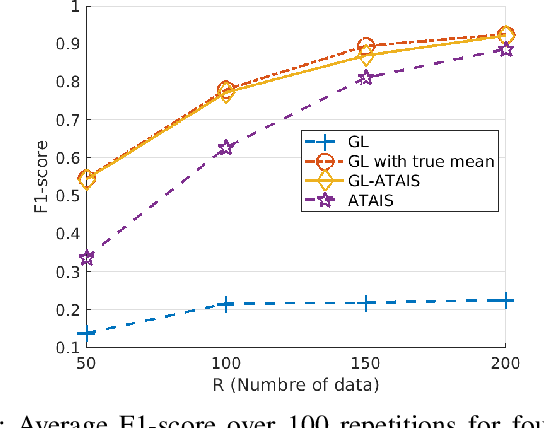
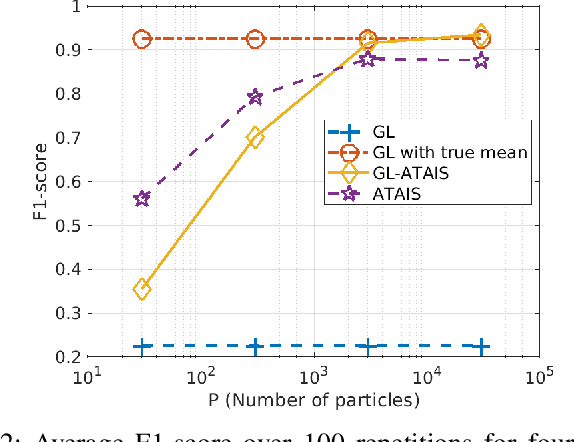
Abstract:This work addresses the problem of graph learning from data following a Gaussian Graphical Model (GGM) with a time-varying mean. Graphical Lasso (GL), the standard method for estimating sparse precision matrices, assumes that the observed data follows a zero-mean Gaussian distribution. However, this assumption is often violated in real-world scenarios where the mean evolves over time due to external influences, trends, or regime shifts. When the mean is not properly accounted for, applying GL directly can lead to estimating a biased precision matrix, hence hindering the graph learning task. To overcome this limitation, we propose Graphical Lasso with Adaptive Targeted Adaptive Importance Sampling (GL-ATAIS), an iterative method that jointly estimates the time-varying mean and the precision matrix. Our approach integrates Bayesian inference with frequentist estimation, leveraging importance sampling to obtain an estimate of the mean while using a regularized maximum likelihood estimator to infer the precision matrix. By iteratively refining both estimates, GL-ATAIS mitigates the bias introduced by time-varying means, leading to more accurate graph recovery. Our numerical evaluation demonstrates the impact of properly accounting for time-dependent means and highlights the advantages of GL-ATAIS over standard GL in recovering the true graph structure.
Optimality in importance sampling: a gentle survey
Feb 11, 2025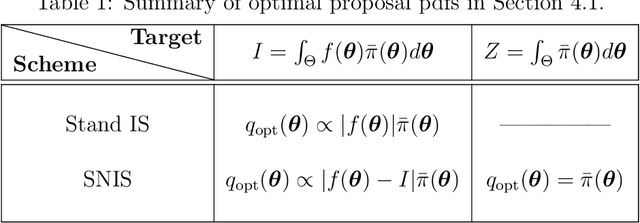
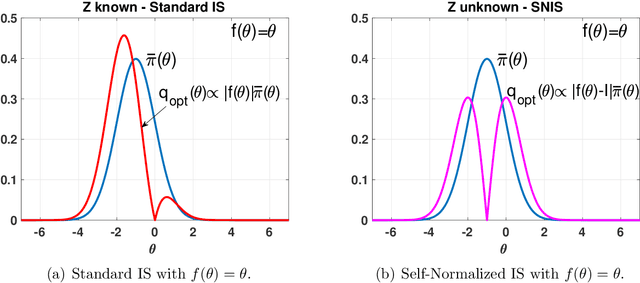
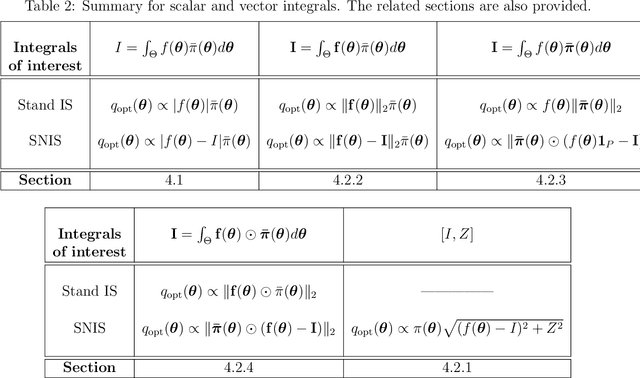
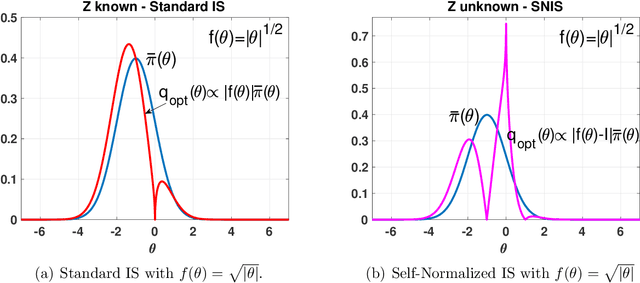
Abstract:The performance of the Monte Carlo sampling methods relies on the crucial choice of a proposal density. The notion of optimality is fundamental to design suitable adaptive procedures of the proposal density within Monte Carlo schemes. This work is an exhaustive review around the concept of optimality in importance sampling. Several frameworks are described and analyzed, such as the marginal likelihood approximation for model selection, the use of multiple proposal densities, a sequence of tempered posteriors, and noisy scenarios including the applications to approximate Bayesian computation (ABC) and reinforcement learning, to name a few. Some theoretical and empirical comparisons are also provided.
Decentralized Online Ensembles of Gaussian Processes for Multi-Agent Systems
Feb 07, 2025Abstract:Flexible and scalable decentralized learning solutions are fundamentally important in the application of multi-agent systems. While several recent approaches introduce (ensembles of) kernel machines in the distributed setting, Bayesian solutions are much more limited. We introduce a fully decentralized, asymptotically exact solution to computing the random feature approximation of Gaussian processes. We further address the choice of hyperparameters by introducing an ensembling scheme for Bayesian multiple kernel learning based on online Bayesian model averaging. The resulting algorithm is tested against Bayesian and frequentist methods on simulated and real-world datasets.
Fusion of Gaussian Processes Predictions with Monte Carlo Sampling
Mar 03, 2024


Abstract:In science and engineering, we often work with models designed for accurate prediction of variables of interest. Recognizing that these models are approximations of reality, it becomes desirable to apply multiple models to the same data and integrate their outcomes. In this paper, we operate within the Bayesian paradigm, relying on Gaussian processes as our models. These models generate predictive probability density functions (pdfs), and the objective is to integrate them systematically, employing both linear and log-linear pooling. We introduce novel approaches for log-linear pooling, determining input-dependent weights for the predictive pdfs of the Gaussian processes. The aggregation of the pdfs is realized through Monte Carlo sampling, drawing samples of weights from their posterior. The performance of these methods, as well as those based on linear pooling, is demonstrated using a synthetic dataset.
CAMEO: Curiosity Augmented Metropolis for Exploratory Optimal Policies
May 19, 2022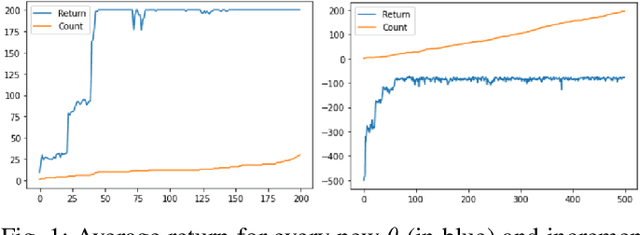
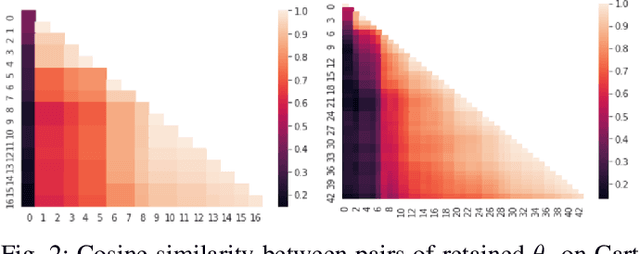
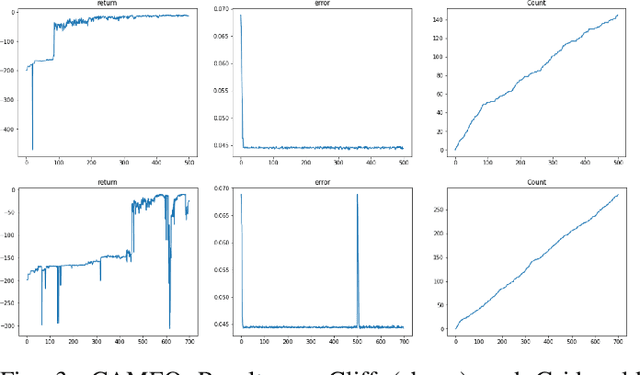
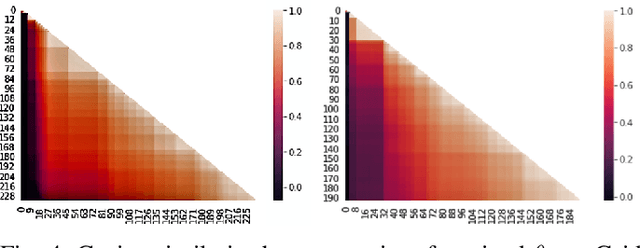
Abstract:Reinforcement Learning has drawn huge interest as a tool for solving optimal control problems. Solving a given problem (task or environment) involves converging towards an optimal policy. However, there might exist multiple optimal policies that can dramatically differ in their behaviour; for example, some may be faster than the others but at the expense of greater risk. We consider and study a distribution of optimal policies. We design a curiosity-augmented Metropolis algorithm (CAMEO), such that we can sample optimal policies, and such that these policies effectively adopt diverse behaviours, since this implies greater coverage of the different possible optimal policies. In experimental simulations we show that CAMEO indeed obtains policies that all solve classic control problems, and even in the challenging case of environments that provide sparse rewards. We further show that the different policies we sample present different risk profiles, corresponding to interesting practical applications in interpretability, and represents a first step towards learning the distribution of optimal policies itself.
Optimality in Noisy Importance Sampling
Jan 07, 2022
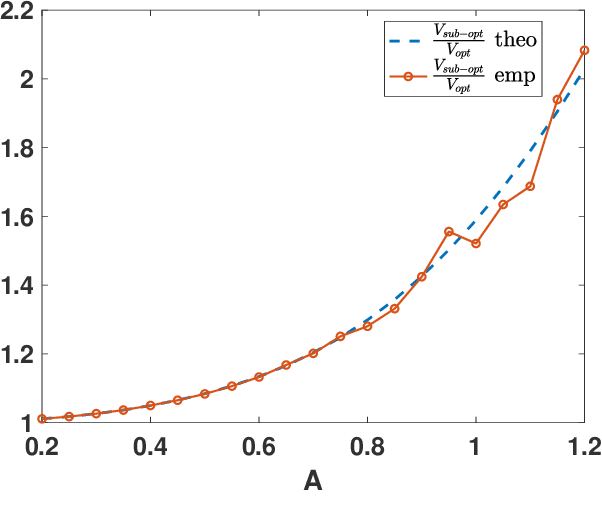
Abstract:In this work, we analyze the noisy importance sampling (IS), i.e., IS working with noisy evaluations of the target density. We present the general framework and derive optimal proposal densities for noisy IS estimators. The optimal proposals incorporate the information of the variance of the noisy realizations, proposing points in regions where the noise power is higher. We also compare the use of the optimal proposals with previous optimality approaches considered in a noisy IS framework.
Marginal likelihood computation for model selection and hypothesis testing: an extensive review
May 17, 2020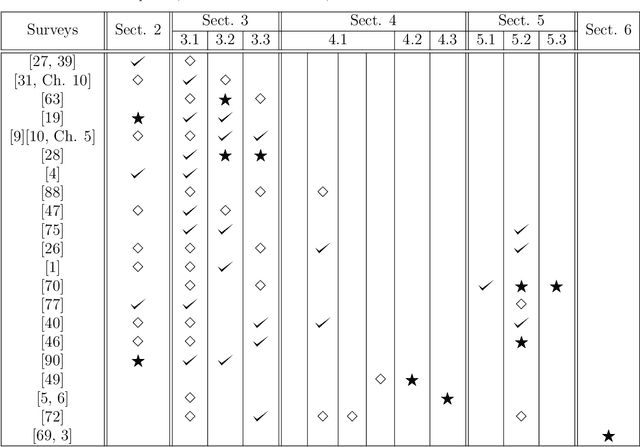

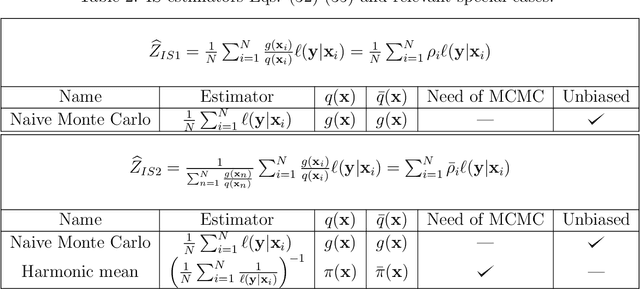
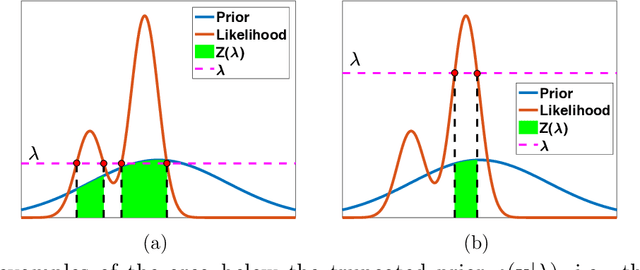
Abstract:This is an up-to-date introduction to, and overview of, marginal likelihood computation for model selection and hypothesis testing. Computing normalizing constants of probability models (or ratio of constants) is a fundamental issue in many applications in statistics, applied mathematics, signal processing and machine learning. This article provides a comprehensive study of the state-of-the-art of the topic. We highlight limitations, benefits, connections and differences among the different techniques. Problems and possible solutions with the use of improper priors are also described. Some of the most relevant methodologies are compared through theoretical comparisons and numerical experiments.
 Add to Chrome
Add to Chrome Add to Firefox
Add to Firefox Add to Edge
Add to Edge